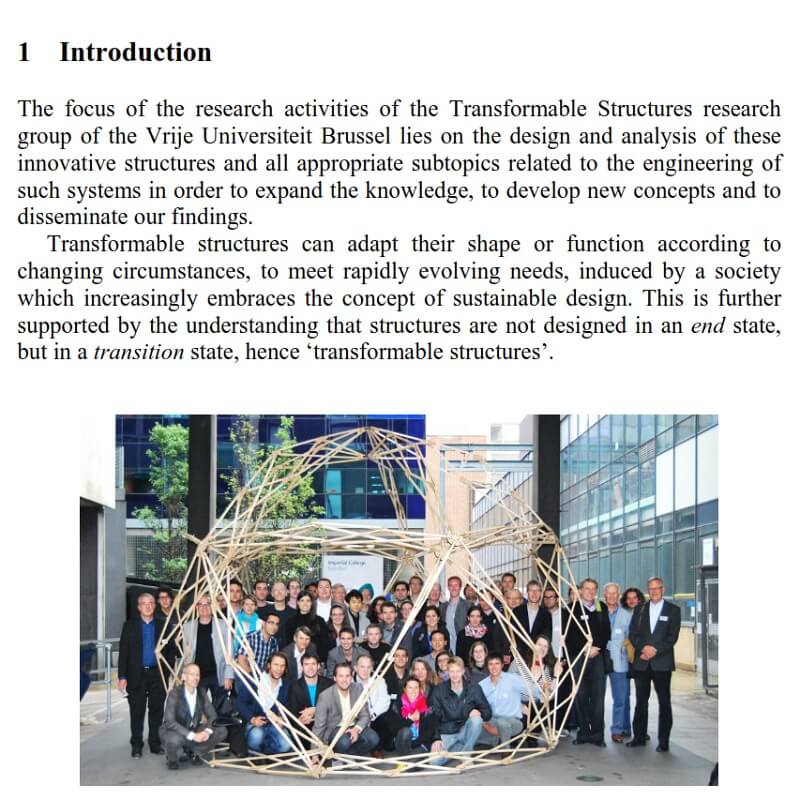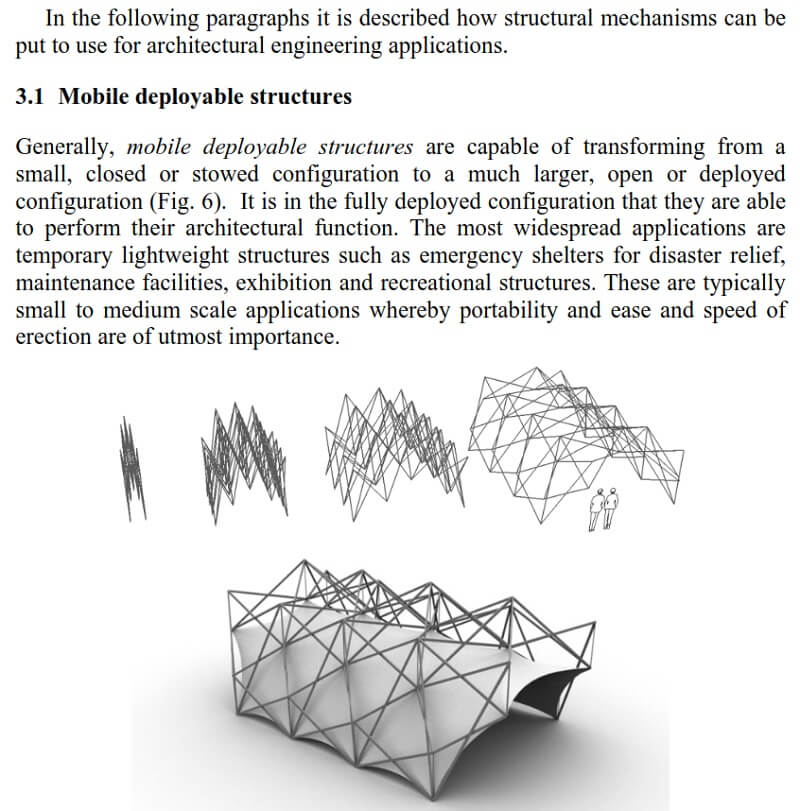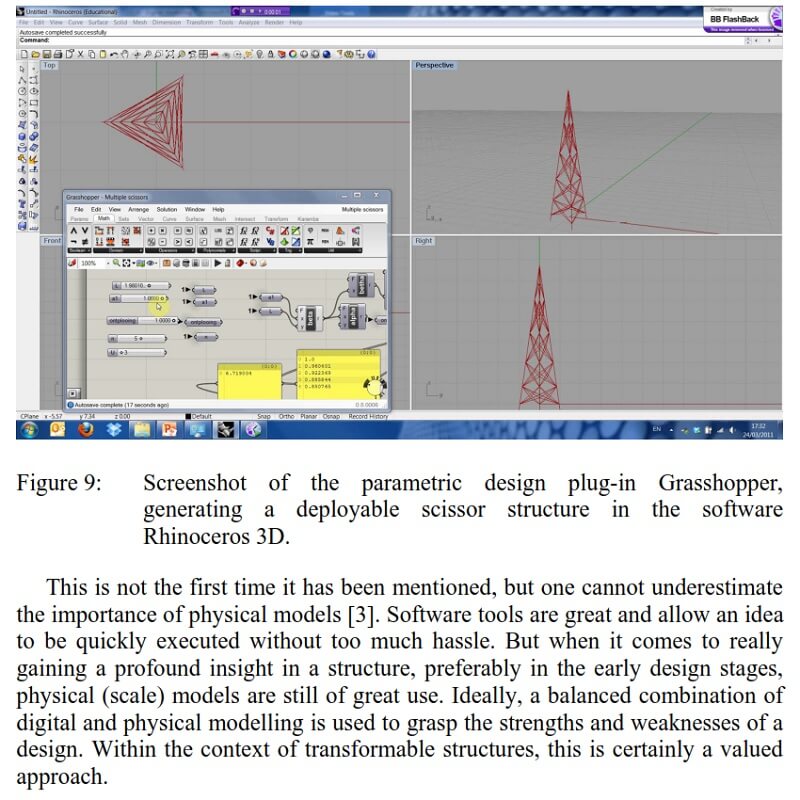
String Art Generator
String Art Generator by Yiran is a grasshopper plugin which generates a string art sequence based on an input image. You can


This paper by N. De Temmerman, L. Alegria Mira, A. Vergauwen, H. Hendrickx & W. P. De Wilde explores the possibilities of transformable structures in architectural and structural engineering. Key aspects concerning the design, analysis and construction of mobile, as well as adaptable constructions, are explained. The transformation of such structures, intended to meet changing requirements, is done by using mechanisms (deployable/foldable) or reconfigurable components (demountable kit-of-parts). Transformable structures can adapt their shape or function according to changing circumstances, to meet rapidly evolving needs, induced by a society which – progressively – embraces the concept of sustainable design. This is further supported by the understanding that structures are not designed in an end state, but in a transition state, hence ‘transformable structures’. Based on how this transformation is realised, two groups of structures can be distinguished. The transformation of the structure is primarily done by either:

(i) incorporating a kinematic mechanism, enabling the structure to deploy from a compact configuration (e.g. for transport) to a larger, expanded state in which it can fulfil its architectural function (e.g. providing shelter) or,
(ii) by designing and realising the structure as a kit-of-parts system (cfr. Meccano construction toy) with dry, reversible connections between the constitutive components, enabling design for disassembly, whereby all components can be reconfigured, replaced or re-used.

The former systems are primarily aimed at the field of temporary construction, in which lightweight, deployable structures are of great use, while the latter are primarily aimed at allowing a structure to be adapted gradually over time. The paper explores the possibilities and limits of both systems, including topics such as geometric design, kinematic behaviour, structural analysis, design- and analysis software and sustainable design. Conclusions are drawn on the current state-of-the-art and suggestions are made for future research.
This paper serves as an introduction to the other papers participating in the special session on ‘Transformable Structures’ at the HPSM 2012 Conference. Keywords: transformable constructions, adaptable structures, mobile structures, deployable structures, kit-of-parts systems.


String Art Generator by Yiran is a grasshopper plugin which generates a string art sequence based on an input image. You can

This paper by Alessandro Liuti, Sofia Colabella, and Alberto Pugnale, presents the construction of Airshell, a small timber gridshell prototype erected by employing a pneumatic formwork.

In this paper by Gregory Charles Quinn, Chris J K Williams, and Christoph Gengnagel, a detailed comparison is carried out between established as well as novel erection methods for strained grid shells by means of FE simulations and a 3D-scanned scaled physical model in order to evaluate key performance criteria such as bending stresses during erection and the distance between shell nodes and their spatial target geometry.

In this paper by Frederic Tayeb, Olivier Baverel, Jean-François Caron, Lionel du Peloux, ductility aspects of a light-weight composite gridshell are developed.
Parametric Ideas for Architects @2025